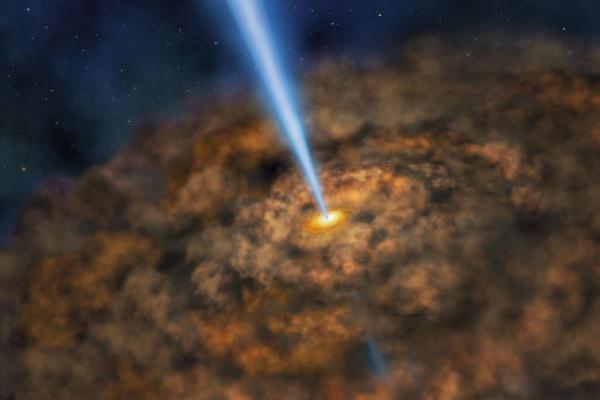Black holes are fuzzy balls of string with an endless appetite for matter

Black holes aren’t surrounded by a burning ring of fire after all, suggests new research. A team from the Department of Physics has calculated an explanation of what would happen if an electron fell into a typical black hole, with a mass as big as the sun. “The probability of the electron hitting a photon from the radiation and burning up is negligible, dropping even further if one considers larger black holes known to exist in space,” said Samir Mathur, a professor of physics at Ohio State. The new study, which appears in the Journal of High Energy Physics, builds on previous work from 2004 led by Mathur that theorized that black holes are basically like giant, messy balls of yarn — “fuzzballs” that gather more and more heft as new objects are sucked in.
Image Credit: NASA/SOFIA/Lynette Cook/UPI
